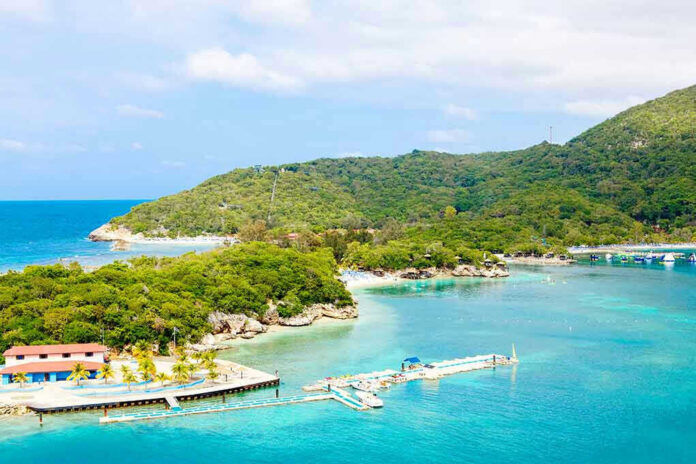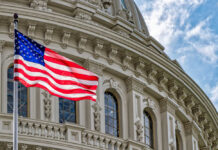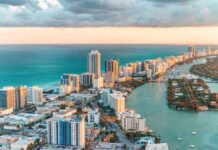
Two tragic drownings at Carnival’s new Bahamas resort have ignited urgent scrutiny over cruise line safety—and whether corporate priorities are overshadowing American families’ well-being.
Story Snapshot
- Two elderly American passengers drowned in separate incidents within hours at Carnival’s newly opened Celebration Key resort.
- The incidents raise serious questions about safety protocols and emergency response at high-profile private resorts.
- The resort, a $600 million investment, had only been open for weeks, amplifying concerns about preparedness.
- Investigations are ongoing, with Carnival and Bahamian authorities under pressure to address potential safety gaps.
Two Fatal Incidents Expose Safety Issues at A New Resort
On August 15, 2025, two American cruise passengers—a 79-year-old man and a 74-year-old woman—lost their lives in separate drowning incidents just hours apart at Celebration Key, Carnival Cruise Line’s new private resort in the Bahamas. Both victims were visiting with their families and were guests from different Carnival ships, adding to the shock and gravity of the events. Lifeguards and medical teams responded quickly, but neither passenger could be revived at the scene.
The drownings occurred in distinct areas: the man became unresponsive while snorkeling at the beach shortly before noon, and the woman drowned in the resort’s lagoon within three hours. These parallel tragedies, at a site promoted as safe and family-friendly, have sparked concern among conservative Americans who value personal responsibility and expect rigorous safety standards when businesses serve the public—especially seniors and families. The fact that both incidents happened so soon after Celebration Key’s July 2025 opening intensifies scrutiny of Carnival’s safety training and emergency preparedness.
Background: Celebration Key’s Launch and Industry Standards
Celebration Key was unveiled in July 2025 as Carnival’s answer to the growing trend of cruise line-operated private resorts. Marketed as an exclusive, secure haven for American vacationers, the $600 million facility features beaches, lagoons, and a range of water activities. The resort adheres to industry requirements by employing lifeguards and medical staff; however, the rare occurrence of two deaths so close together at a new destination is highly unusual and has prompted a wave of questions about whether safety protocols were fully tested and implemented before public opening.
Historically, drownings and serious accidents at private islands owned by cruise lines are uncommon, but not unheard of. What sets this event apart is the proximity of the deaths and the resort’s recent launch, raising critical concerns about whether Carnival prioritized guest safety or rushed to showcase its latest asset. For families who trust companies with their loved ones’ well-being, such questions resonate deeply, especially when corporate expansion is at stake.
Stakeholder Response and Ongoing Investigations
Carnival Cruise Line has confirmed both deaths and issued statements expressing condolences. The cruise giant’s Care Team is reportedly assisting the victims’ families, while the Royal Bahamas Police Force leads the investigation. Thus far, there is no evidence of foul play; both incidents are considered apparent drownings. The resort remains open but faces mounting pressure from American travelers, industry observers, and the broader public to demonstrate that guest safety is not an afterthought in the pursuit of profit and market share.
Resort staff, including lifeguards and medical responders, acted according to established protocols, but the effectiveness and sufficiency of these measures are now under review. The families of the victims, other cruise passengers, and the Bahamian tourism sector all have a stake in how swiftly and transparently Carnival addresses these tragic events. The role of local authorities is also critical, as they hold jurisdiction over the investigation and any subsequent safety recommendations or legal actions.
Long-Term Impact and Industry Implications
In the immediate aftermath, Carnival faces negative publicity, possible declines in bookings, and heightened scrutiny of its emergency response procedures. For conservative Americans who champion accountability and expect businesses to uphold their end of the social contract, these events reinforce the importance of robust, transparent safety standards—especially when elderly and vulnerable guests are involved. The incidents may lead to enhanced safety protocols, new industry benchmarks, and even regulatory reviews of cruise line-operated destinations in the Bahamas.
Breaking News 2 Carnival Cruise Passengers Drown in Separate Incidents on Vacation in Bahamas
— Adam Bourgeois (@RealABourgeois) August 24, 2025
Broader consequences extend to guests’ confidence in cruise vacations, the economic stability of Bahamian tourism, and the reputations of companies that cater to American families. Experts in tourism safety and maritime law are calling for comprehensive risk assessments, improved emergency preparedness, and clear lines of accountability. While some commentators view the deaths as tragic coincidences, others argue that they expose deeper systemic issues in how rapidly expanding resorts manage the balance between growth and guest protection.




























